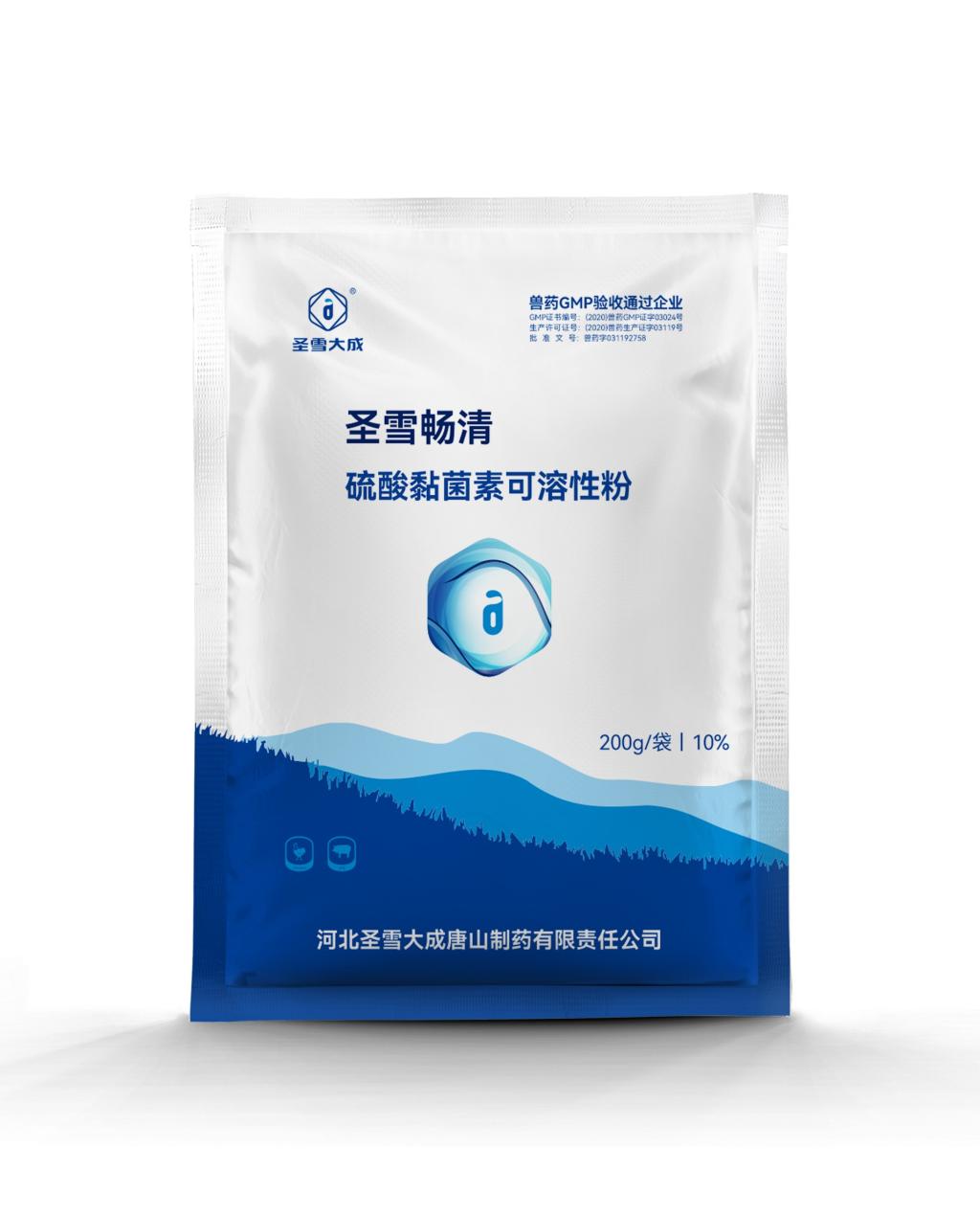Tel:+8618231198596

News
 CONTACT
CONTACT
 CONTACT
CONTACT
- Linkman:Linda Yao
- Tel: +8618231198596
- Email:linda.yao@dcpharma.cn
- Linkman:CHARLES.WANG
- Department:Overseas
- Tel: 0086 0311-85537378 0086 0311-85539701
News
Current Position:
Home >
News
>Veterinary Perspectives: Colistin Sulfate Soluble Powder and Animal Health Outcomes.
Veterinary Perspectives: Colistin Sulfate Soluble Powder and Animal Health Outcomes.
TIME:2024-01-03
Historical Context:
Colistin, discovered in the 1940s, was initially developed for human use. Over time, its use declined in human medicine due to concerns about nephrotoxicity. However, colistin found renewed relevance in veterinary medicine, becoming a crucial tool for preventing and treating bacterial infections in animals.
Veterinary Applications:
a. Disease Prevention:
Colistin sulfate soluble powder is widely used in veterinary practice for the prevention of bacterial infections in various animal species. Its broad-spectrum antimicrobial properties make it effective against a range of pathogens affecting livestock, poultry, and companion animals.
b. Growth Promotion:
In addition to therapeutic uses, colistin sulfate has been employed as a growth promoter in animal feed. Subtherapeutic doses are administered to enhance weight gain and feed efficiency, contributing to improved productivity in the livestock industry.
Impact on Animal Health:
a. Treatment of Respiratory Infections:
Colistin sulfate is frequently used in the treatment of respiratory infections in animals, particularly in swine and poultry. Its effectiveness against respiratory pathogens can significantly impact the health outcomes of animals in intensive farming systems.
b. Gastrointestinal Infections:
The antibiotic's application in treating gastrointestinal infections is crucial for maintaining digestive health in animals. Colistin sulfate addresses bacterial challenges in the gut, contributing to overall gastrointestinal well-being.
c. Impact on Production Animals:
In production animal settings, such as poultry and swine farms, colistin sulfate has been instrumental in preventing and controlling infectious diseases. Healthy animals contribute to improved production efficiency, ensuring a sustainable and economically viable farming operation.
Antibiotic Resistance Concerns:
a. Emergence of Resistant Strains:
One of the primary concerns surrounding colistin sulfate is the potential emergence of antibiotic-resistant bacterial strains. The indiscriminate use of antibiotics, including colistin, may contribute to the development of resistance, limiting treatment options for veterinarians.
b. Impact on Animal and Human Health:
The rise of antibiotic-resistant bacteria in animals poses a dual risk – it affects both animal and human health. Resistant strains can be transmitted from animals to humans, challenging the effectiveness of antibiotics in treating infections in both populations.
One Health Approach:
a. Interconnectedness of Human and Animal Health:
The One Health approach recognizes the interconnectedness of human and animal health. Veterinarians play a crucial role in implementing this approach by considering the impact of antibiotic use on both animal and human populations.
b. Collaboration Between Veterinary and Human Medicine:
Collaboration between veterinary and human medicine professionals is essential for addressing the challenges associated with antibiotic resistance. Shared knowledge, surveillance data, and strategies for responsible antibiotic use contribute to a holistic approach to health.
Responsible Antibiotic Use:
a. Prudent Prescription Practices:
Veterinarians advocate for prudent prescription practices, ensuring that antibiotics, including colistin sulfate, are administered only when necessary. This approach involves accurate diagnosis, consideration of alternative treatments, and adherence to recommended dosages.
b. Disease Prevention Strategies:
Emphasizing disease prevention strategies, such as vaccination, biosecurity measures, and proper animal husbandry, reduces the reliance on therapeutic antibiotics. Preventing infections in the first place is a fundamental aspect of responsible antibiotic use.
Alternatives to Colistin Sulfate:
a. Probiotics and Prebiotics:
Veterinarians explore alternatives, such as probiotics and prebiotics, to promote a healthy gut microbiome in animals. These alternatives may help reduce the need for antibiotics and mitigate the risk of resistance.
b. Integrated Pest Management:
Addressing environmental factors that contribute to disease spread, such as vectors and housing conditions, supports overall animal health and minimizes the reliance on antibiotics. An integrated approach to pest management aligns with responsible antibiotic use.
Surveillance and Monitoring:
a. Resistance Surveillance:
Regular surveillance of antibiotic resistance patterns in animals is essential. Veterinarians monitor resistance trends to assess the impact of antibiotic use and adapt treatment strategies accordingly.
b. Reporting Adverse Reactions:
Veterinarians encourage farmers to report any adverse reactions or treatment failures promptly. This information is valuable for ongoing assessments of antibiotic efficacy and the emergence of resistant strains.
Veterinarian Education and Training:
a. Continuous Professional Development:
Veterinarians engage in continuous professional development to stay abreast of the latest research, guidelines, and alternatives to colistin sulfate. Informed veterinarians are better equipped to make responsible decisions in their prescribing practices.
b. Farmer Education:
Educating farmers on the importance of responsible antibiotic use is crucial. Veterinarians collaborate with farmers to establish farm-specific antibiotic use protocols, emphasizing the potential consequences of misuse.
Future Directions and Research:
a. Research on Antibiotic Alternatives:
Ongoing research focuses on discovering alternatives to traditional antibiotics. Veterinarians actively contribute to this field, exploring novel therapies that maintain animal health without relying on antibiotics.
b. Precision Veterinary Medicine:
Advancements in precision veterinary medicine, including rapid diagnostics and targeted therapies, hold promise for reducing the broad-spectrum impact of antibiotics. Veterinarians participate in research and implementation of these precision approaches.
Conclusion:
Veterinary perspectives on colistin sulfate soluble powder underscore the delicate balance between its benefits in maintaining animal health and the potential risks associated with antibiotic resistance. Through responsible use, collaboration, and continuous education, veterinarians are crucial advocates for the sustainable and ethical use of colistin sulfate. As the veterinary community embraces alternatives, precision medicine, and a One Health approach, it contributes to a future where antibiotics are used judiciously, preserving their efficacy for the well-being of both animals and humans.
- Tel:+8618231198596
- Whatsapp:18231198596
- Chat With Skype







